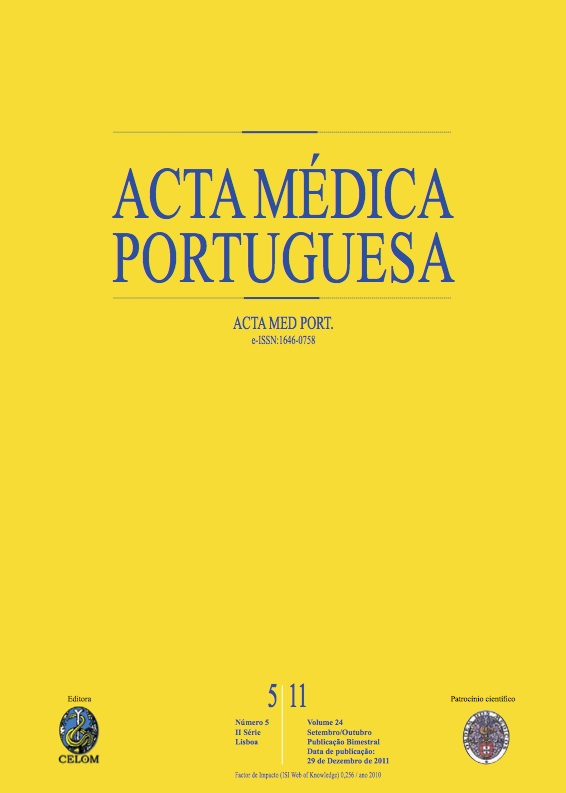Relationship of pattern hyperlipidic intake with quality of diet, insulin resistance and homocysteinemia in adults.
DOI:
https://doi.org/10.20344/amp.515Abstract
To evaluate the association between the consumption of different dietary fats with the quality of the diet, insulin resistance, and hyperhomocysteinemia in adults.Cross-sectional study conducted with 624 overweight subjects (73.7% females). Assessments of food intake (24h food recall and health eating index-HEI), anthropometry, and biochemical assays of fasting glucose, insulin (HOMA-IR and ß calculus) and homocysteinemia were performed.The low quality of diet was associated with the vegetable oil at 3rd quintile (≥1.5-2.0 servings) showed risk 2.9 times and cholesterol at quintiles 2nd, 3rd, and 4th was 2.0 times. HOMA-IR was higher at 5th quintile of saturated fat (≥10,7% - total caloric value) with risk of 60% and hyperhomocysteinemia the vegetable oil at 3rd quintile (>1.5-2.0 servings) with risk of 12.0 times and 5th (≥3.5 servings) 7.1 times. However, significance disappeared when adjusted for anthropometric variables.Dietary fats were associated with the harm diet quality, insulin resistance, andhyperhomocysteinemia. However, associations are dependant of demographic variables, dietetic, and nutritional state.Downloads
Downloads
How to Cite
Issue
Section
License
All the articles published in the AMP are open access and comply with the requirements of funding agencies or academic institutions. The AMP is governed by the terms of the Creative Commons ‘Attribution – Non-Commercial Use - (CC-BY-NC)’ license, regarding the use by third parties.
It is the author’s responsibility to obtain approval for the reproduction of figures, tables, etc. from other publications.
Upon acceptance of an article for publication, the authors will be asked to complete the ICMJE “Copyright Liability and Copyright Sharing Statement “(http://www.actamedicaportuguesa.com/info/AMP-NormasPublicacao.pdf) and the “Declaration of Potential Conflicts of Interest” (http:// www.icmje.org/conflicts-of-interest). An e-mail will be sent to the corresponding author to acknowledge receipt of the manuscript.
After publication, the authors are authorised to make their articles available in repositories of their institutions of origin, as long as they always mention where they were published and according to the Creative Commons license.









